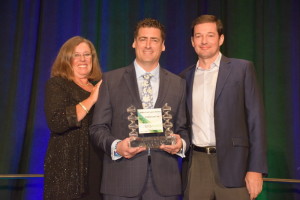The licensed technology can increase global access to gene therapy through lower costs and shortened regulatory timelines
Tucson, Ariz., January 5, 2016 – Calimmune Inc., a clinical-stage gene therapy company, has expanded its intellectual property estate covering Cytegrity™, an innovative lentiviral vector manufacturing technology, through a second licensing agreement with St. Jude Children’s Research Hospital. Financial terms of the deal were not disclosed.
Calimmune and St. Jude have collaborated on vector manufacturing technology since December 2013.
Under the expanded agreement, Calimmune is granted an exclusive, worldwide license to develop and commercialize product candidates using a second stable packaging cell line that produces lentiviral vectors. The technology will be part of Calimmune’s proprietary Cytegrity lentiviral vector bioproduction process, which improves scalability and affordability of gene therapy, and could result in as much as a 90 percent decrease in the cost of current methods for vector production.

Calimmune President & CEO Louis Breton (center) accepts the 2015 AZBio Fast Lane Award on behalf of the Calimmune Team from Joan Koerber-Walker of AZBio and Curtis Gunn of Desert Angels
In an aligned effort to improve access to gene therapy globally, Calimmune and St. Jude have agreed that no royalties should be due from the sale of licensed products in developing-world countries if those products are sold at minimal or no profit. In addition, Calimmune aims to make this technology broadly available to companies developing lentivector-based gene therapies through commercial license.
“This partnership is a significant piece of the larger mission that brings us one step closer toward democratizing gene therapy,” said Louis Breton, chief executive officer of Calimmune. “Together with St. Jude, we are developing solutions that will make gene therapy accessible and affordable to all who might benefit.”
About Cytegrity™
Cytegrity is a scalable manufacturing technology for the production of lentiviral vectors, which are used as a delivery mechanism for gene therapy. Lentiviral vectors are traditionally manufactured in small batches through a tedious process; Cytegrity introduces a new system that increases consistency and quality, while significantly lowering costs. By streamlining the production of lentiviral vectors, Calimmune seeks to enable clinically successful gene therapies to be more widely accessible.
St. Jude Children’s Research Hospital
St. Jude Children’s Research Hospital is leading the way the world understands, treats and defeats childhood cancer and other life-threatening diseases. It is the only National Cancer Institute-designated Comprehensive Cancer Center devoted solely to children. Treatments developed at St. Jude have helped push the overall childhood cancer survival rate from 20 percent to 80 percent since the hospital opened more than 50 years ago. St. Jude freely shares the breakthroughs it makes, and every child saved at St. Jude means doctors and scientists worldwide can use that knowledge to save thousands more children. Families never receive a bill from St. Jude for treatment, travel, housing and food—because all a family should worry about is helping their child live. To learn more, visit stjude.org or follow St. Jude at@stjuderesearch.
About Calimmune
Calimmune Inc. is a clinical-stage, international biotechnology company focused on developing novel gene therapies that have the potential to improve and protect the lives of patients by enhancing their immune system. The company was founded in 2006 from technology developed in the labs of Nobel Laureate David Baltimore, Ph.D. (California Institute of Technology), Irvin Chen, Ph.D. (University of California, Los Angeles) and Inder M. Verma, Ph.D. (Salk Institute for Biological Studies). Calimmune’s lead product candidate for HIV, now in Phase I/II studies, is being evaluated as a one-time treatment to prevent HIV progression to AIDS. The company is headquartered in Tucson, Arizona with labs and branch offices in Pasadena, California and Sydney, Australia.

